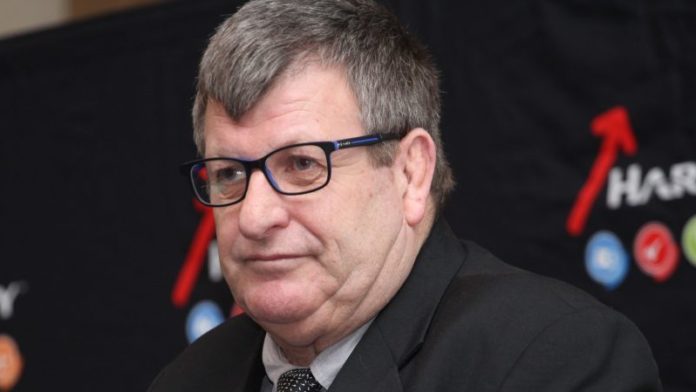
THE pressure on the South African government to relax, if not lift, lockdown measures is only likely to grow over the coming weeks, not least of which from South Africa’s gold sector.
Harmony Gold CEO, Peter Steenkamp, was careful with his wording at the firm’s first quarter presentation earlier this month, but the message was nonetheless clear: nearly a month after the end of the initial 21-day COVID-19 lockdown, his company is ready – hopeful even – of resuming full production.
“I’m confident that the mining sector has positioned itself well so I’m also confident we could get relief at the next level,” he said in response to analyst questions.
The relief to which he refers is that the country’s underground mines are allowed to progress to 100% production at Level 3. The current dispensation in terms of the government’s amended lockdown regulations is that underground mines operate at 50% of capacity, whereas mechanised, less labour-intensive open-cast mines are permitted to operate at full throttle.
“We have done a tremendous amount of work so we can get back to 100%. The minister, (mines and energy minister, Gwede Mantashe) has been to the operations. We have testing and quarantine facilities in place and we have had good support from unions,” he said.
Asked if AngloGold Ashanti had received indication from the government as to whether the lockdown as it applies to the sector might be changed, the firm’s CEO Kelvin Dushnisky told Miningmx: “It’s not something I can pre-judge. We have been careful though not to get to 50% of production as quickly as we can. We’ve been very cautious and that’s probably the way to proceed: not to rush things”.
Clearly, there’s no saying how the situation will play out. “I’m reluctant to make predictions. I would rather bank the stuff and then update the market,” said Steenkamp of how gold production would proceed for the remainder of the company’s year.
PAUSE ON SA GOLD SHARES?
According to Arnold van Graan, a precious metals analyst at Nedbank Securities, the current level of uncertainty might be the time to hit the pause button on South African gold stocks, the strong prospects for the dollar price of the metal notwithstanding.
He believes the full impact of the country’s lockdown is yet to be felt in the production and earnings numbers of the likes of Harmony Gold and another gold producer, DRDGold, which retreats gold mining dumps and is therefore allowed to operate at 100%.
“We … believe this is just the start of the bad news cycle for Harmony and many other gold producers, with the coming quarters likely to reflect the real and material impact of the lockdown and Level 4 restrictions,” he said.
“In the absence of a higher gold price, the gold stocks could come under pressure,” said Van Graan. Shares in Harmony fell 16% in the days following an announcement it planned to raise $200m in shares to help pay for the $300m purchase of Mponeng from Anglogold, but they have since partly recovered.
According to an industry source, it makes enormous sense for Harmony to have issued the shares. Firstly, they were trading at five year highs; secondly, there’s the relatively unappreciated fact that bundled with AngloGold’s Mponeng, one of the deepest mines in the world, is Mine Waste Solutions which re-mines or processes gold tailings and is therefore allowed to operate at 100% of capacity.
“There’s a massive margin to be made on surface gold at the current rand gold price. Harmony is going to do extremely well out of that at the current gold price,” he said.
Increasing the production rate of its Elikhulu Tailings Retreatment Plant and Barberton Tailings Retreatment Plant helped Pan African Resources, a gold junior listed in London and Johannesburg, minimise ‘lost’ gold production from the 21-day lockdown to a mere 5% of its previously guided annual total. In addition, the improved gold price meant that over the course of the firm’s financial year, which ends on June 30, the company is set to cut debt some R500m, about 28% year-on-year.
DRDGOLD reported an 18% quarter-on-quarter increase in adjusted EBITDA because it was able to draw down on stockpiled ore which is a feature of surface mining.
Nedbank’s Van Graan, however, says the full impact of COVID-19 is yet to show itself, especially on DRDGOLD. “The bulk of the impact of the lockdown is yet to be felt,” he said. “In addition to further production losses, the depletion of its inventory pipeline will have a knock-on impact in the next quarter as the pipeline will need to be refilled.”











